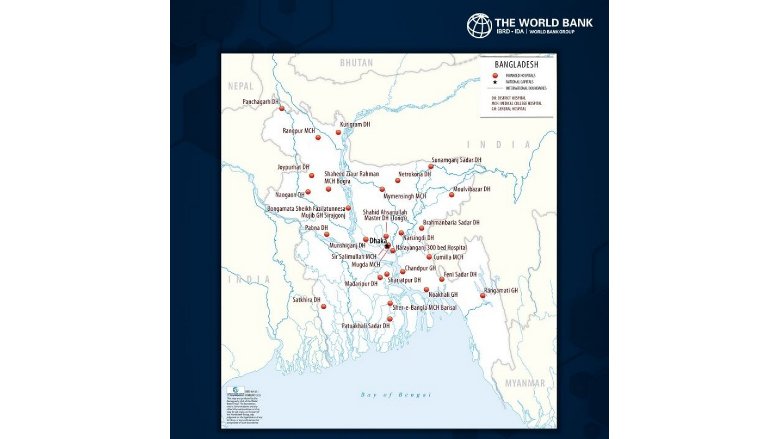Like the rest of the world, Bangladesh was also heavily impacted by the COVID-19 pandemic. Since the outbreak of COVID-19, the country has faced challenges in procuring essential supplies with a severely constrained global supply chain. The success of the country in coping with this unprecedented crisis depended on how quickly it could mobilize essential medical supplies. So, how did the government manage?
Emergency support to manage COVID-19 cases
The World Bank approved emergency financing of $100 million in March 2020 to support the Government’s health response. The financing helped Bangladesh access critical supplies like ventilators, oxygen concentrators, hospital beds, and personal protective equipment (PPE) for the front-line health workers.
The financing helped Bangladesh to ensure the following:
- Liquid medical oxygen (LMO) system was established at 30 public hospitals across the country. The centralized gas pipelines as part of the LMO systems are critical for treating people suffering from COVID-19 and other respiratory ailments.
- 300 ventilators were installed at public hospitals dealing with COVID-19 cases across the country.
- 220 beds for the intensive care unit (ICU) were set up at the Dhaka North City Corporation COVID-19 Dedicated Hospital.
- 40 ventilators, 20 oxygen concentrators and 20 pulse oximeters for the Bongomata Field Hospital at Bongobondhu Sheikh Mujib Medical University Dhaka.
- Large quantities of PPE, masks, body bags, gloves, goggles, coveralls, and aprons were supplied for the protection of frontline workers.
- COVID-19 testing machines and kits used by laboratories dealing with COVID-19 samples.




